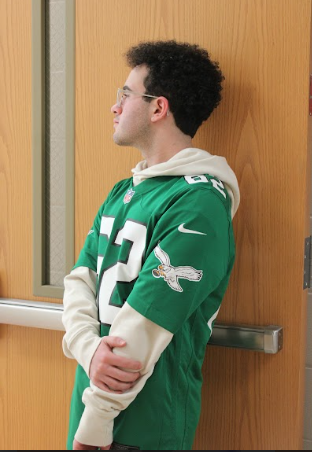PCHS introduced a new remediation policy that looks different from last year. After the COVID lockdown, Panther Creek changed its remediation policy to allow any student to remediate any assignment. The teacher would average the two scores to benefit the student’s grade. Now, students can only remediate if they get under a 70% on an assignment, and they can only get their grade up to the 70% benchmark.
These changes were an attempt at stopping grade inflation, but many students prefer the old policy to the new, and not for the reasons you may think.
People think that students are upset because their grades will suffer more than last year, and while this may be part of it, students also think their overall understanding of their classes will be less than last year. One student said “I feel there is always room for improvement. Only letting people remediate if they get less than a 70 doesn’t give them motivation to do better .“ Another agreed with this, explaining “Remediation keeps me motivated to learn more in order to do better the second time. I am also able to study the tests precisely.”
This is also a question of equality. A person who preferred the unrestrained remediation policy last year said “everyone should have an equal opportunity to better their grade, no matter how high or low.” Another thought that “coming in from last year when the remediation policy was so lenient, I think it’s been really hard for students to uphold the grades that they had been maintaining.”
Teachers seem to have a different opinion, however. In an interview with Coach Bristol, he said he preferred this because it is more efficient for grading: “last year kids would wait until the end of the… quarter and want to turn in a million assignments that were late.” He prefers this guideline and that there are ”standards that you stick to and create an expectation.”
Bristol also commented that the new remediation policy isn’t quite as strict as it seems: “you still give them a chance to dig themselves out of a hole if they’re willing to put in the work but it’s not something where you have to wait for five six weeks to turn in an assignment.”
Another teacher-who wished to remain anonymous- focused on how keeping the lenient remediation policy of last year would be bad for the students’ future. She said “I think that even at the senior level they need to understand that life doesn’t work that way.” She elaborated, “We’re training their minds to be responsible adults and if we put it in their minds that… life is always going to give you a second chance and you don’t really have to try that hard, it is a disservice to them.”
She also spoke about how that leniency would affect the school. “It is a disservice to the school because our name is going to be on their diploma. Some kids run off like [not getting a second chance] is the exception not the rule and now we’re treating it like the rule and not the exception.”
Some have argued that the reason for changing the policy was because grades were being hyperinflated, but this teachers disagreed. She explained that the grades are only inflated “if they don’t know the material and we’re just giving them grades” when they “haven’t mastered it”. She actually thought that the new remediation policy inflates grades more than last year’s because “there is a kind of pressure to get them [students] over the line so we can get graduation rates.”
While she agrees that second chances aren’t always given, she does recognize the unfairness that students are calling out. She said that someone who is “a high performer who always knocks it out of the park with that 90% all the time” will sometimes have a bad day, and that “their bad day is a 75% that tanks their GPA.” This perception coincides with a lot of the students at PC: “Just because their norm is higher than someone else’s norm they should still get the opportunity to have another run at it.”
So what is the solution? No one has completely agreed that one thing definitely works, but this teacher has a plan. Her solution: to taper remediation in order to reflect the grade a student is in. She recognizes the different needs of each grade of high school. In her words, “9th graders are 9th graders. They are all over the place so they need that grace and that time to redo it. But by the time they’re seniors you’re preparing them for adulthood, for a career .. so they need to have that structure… that rule of life embedded.”
Her process is simple. “Starting in ninth grade you get to remediate it maybe twice, and then once in sophomore year, once in junior year.” For seniors, she thinks that students should “get to retake any major assessment you want to… you get that one shot to remediate that one bad day, that one major, and that’s it.”
So, what do we think, Panther Creek? Should we keep what we have now, go back to our old ways, or completely change the game? We will see what the future holds, but for now, we’ve got to study, study, study.





